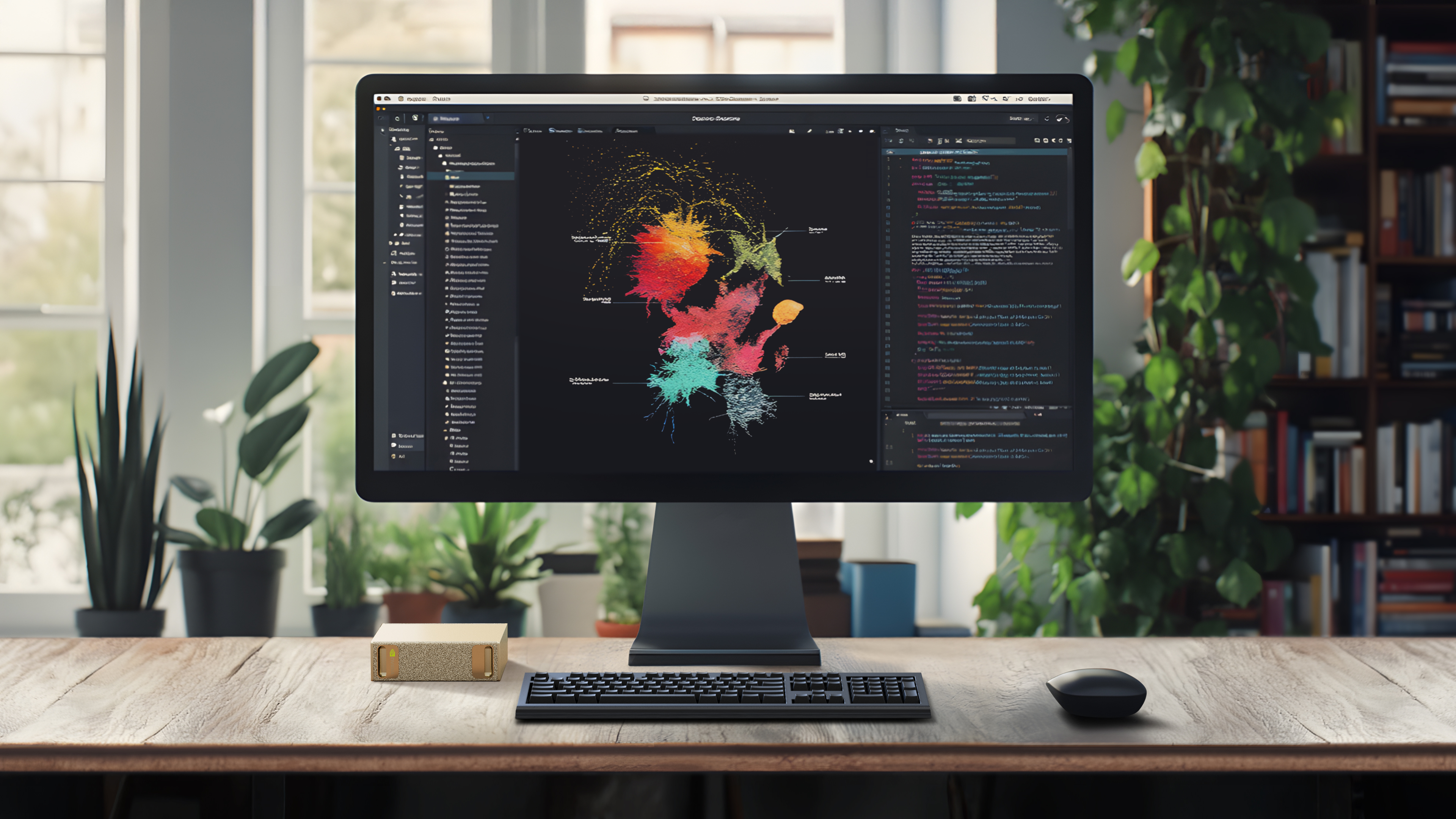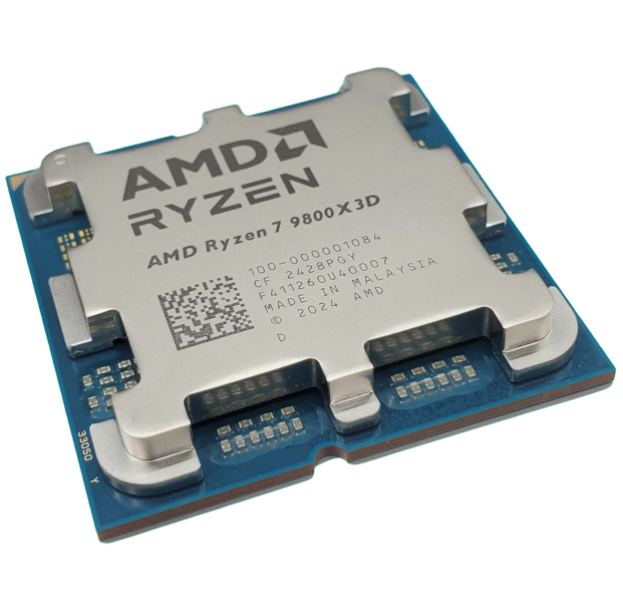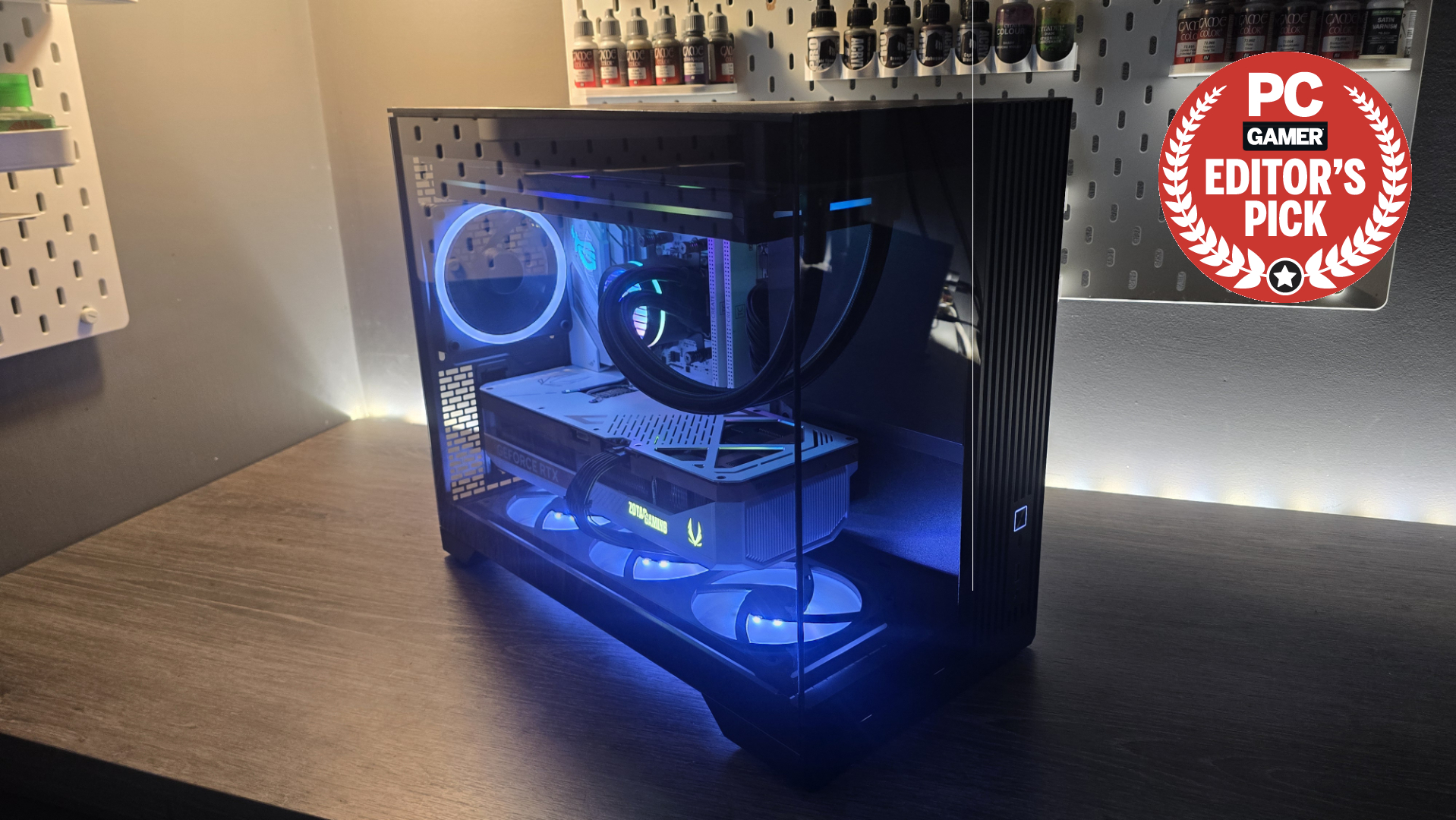
Keep up to date with the most important stories and the best deals, as picked by the PC Gamer team.
You are now subscribed
Your newsletter sign-up was successful
Want to add more newsletters?
Nvidia has finally started shipping its first DGX Spark mini 'supercomputers' and Musk's got his mitts on the first one. The company relays, "Nvidia founder and CEO Jensen Huang arrived at the SpaceX facility—amid towering engines and gleaming steel—to hand-deliver the company’s just-launched DGX Spark to Elon Musk."
Huang joked, "Imagine delivering the smallest supercomputer next to the biggest rocket," referring to Starship, an in-development orbital rocket with the biggest capacity of any so far.
Nvidia's DGX Spark was first known as Project Digits and is a small home-user AI supercomputer built with Grace Blackwell silicon. More specifically, that silicon is GB10, a chip with a one petaFLOP Blackwell GPU and a Grace CPU with 20 Arm cores, plus 128 GB of LPDDR5X unified memory and up to 4 TB of NVMe storage.
Part of the reason we've had our eye on GB10 and DGX Spark as PC gamers is that there's been lots of talk about it perhaps being transplanted into an N1 APU to make for Windows on Arm laptop chips. That's recently been confirmed by Huang, too, who said Nvidia has "a new Arm product that's called N1", which goes into DGX Spark.

That all-Nvidia N1 laptop chip has a bit of an air of myth about it, though, given its seemingly never-ending delays. These delays seem to have made at least some in the industry a little sceptical about GB10 in general.
Charlie Demerjian of SemiAccurate, for instance, reckons this GB10/N1X launch is a 'PR stunt' because despite the chip "now looking like it will be 18 months late", Nvidia's strategy, he thinks, is to "seed a few units to the media and claim it is production."
📢#NVIDIADGX Spark arrives for the world's AI developers. #SparkSomethingBigCheck out the specs and when it'll start shipping by reading our announcement below. ⬇️ https://t.co/rZG4592qT4 pic.twitter.com/tDleMzD8lxOctober 14, 2025
Apparently, "SemiAccurate has heard multiple claims of volumes for this seeding program but none exceed two digits. That is a total for all manufacturers, not per OEM." And several "were given a pretty stringent list of do’s and don’ts for their ‘independent’ testing," which Demerjian sees to mean that "Nvidia is seeding a scant few units that don’t actually work right to select media" to "make things look like it is production, or close to."
Keep up to date with the most important stories and the best deals, as picked by the PC Gamer team.
I can't confirm or deny any of this, but whether it's a "PR stunt" or otherwise, we can at least see that DGX Spark exists in the wild and is in the hands of at least some researchers and so on. On Nvidia's side, the company says these "early recipients" are "testing, validating and optimizing their tools, software and models for DGX Spark."
Also, according to Nvidia, "Acer, ASUS, Dell Technologies, GIGABYTE, HP, Lenovo and MSI are rolling out systems that put petaflop AI on your desk, transforming the desktop into an AI launchpad."
No word on those N1 laptops with Windows on Arm, though. Previous rumours—veritably ancient rumours, now, really—had it that we'd see them featuring in some Alienware gaming laptops with RTX 4070-level performance. Call me a dreamer, but I'm still holding out for that one. Don't burst my bubble, okay?

1. Best overall:
AMD Ryzen 7 9800X3D
2. Best budget:
AMD Ryzen 5 7600X
3. Best mid-range:
AMD Ryzen 7 9700X
4. Best high-end:
AMD Ryzen 9 9950X3D
5. Best AM4 upgrade:
AMD Ryzen 7 5700X3D
6. Best CPU graphics:
AMD Ryzen 7 8700G

Jacob got his hands on a gaming PC for the first time when he was about 12 years old. He swiftly realised the local PC repair store had ripped him off with his build and vowed never to let another soul build his rig again. With this vow, Jacob the hardware junkie was born. Since then, Jacob's led a double-life as part-hardware geek, part-philosophy nerd, first working as a Hardware Writer for PCGamesN in 2020, then working towards a PhD in Philosophy for a few years while freelancing on the side for sites such as TechRadar, Pocket-lint, and yours truly, PC Gamer. Eventually, he gave up the ruthless mercenary life to join the world's #1 PC Gaming site full-time. It's definitely not an ego thing, he assures us.
You must confirm your public display name before commenting
Please logout and then login again, you will then be prompted to enter your display name.

